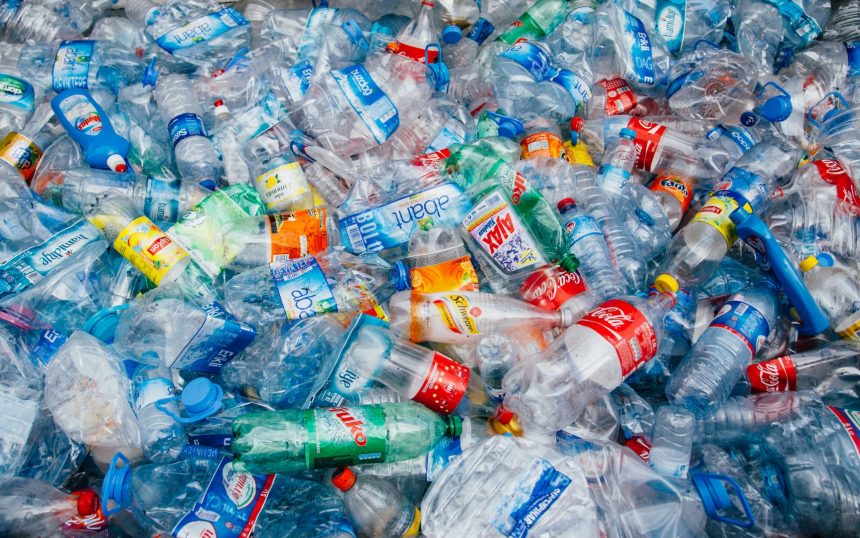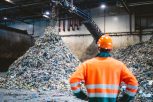What Is Recycling? A Beginner’s Guide to Understanding the Basics

Recycling is more than an environmental buzzword—it is a global necessity in addressing the mounting waste crisis and conserving resources for future generations. Every year, humanity generates billions of tons of waste, a significant portion of which could be recycled to reduce landfill dependency, save energy, and protect natural ecosystems.
For industries, recycling is not just about doing good; it’s about efficient waste management and contributing to a circular economy. Companies like Arka Recycles, a trusted GPBC-authorized waste management company, play a crucial role in helping businesses and communities recycle responsibly. From processing industrial PVC scrap to providing high-quality recycled materials like LDPE and HDPE granules, organizations like these help bridge the gap between waste creation and resource conservation.
This comprehensive guide breaks down what recycling is, why it’s vital, and how individuals, businesses, and industries can make a difference through effective recycling practices. Whether you’re seeking waste management services, looking for scrap buyers in India, or understanding the role of medical waste disposal companies, this guide offers all the insights you need to start your recycling journey.
What Is Recycling?
Detailed Definition of Recycling
Recycling is a circular approach to managing waste, where used materials are reintroduced into the production cycle instead of being discarded. This process helps in conserving raw materials, reducing greenhouse gas emissions, and promoting a cleaner environment. It encompasses various steps, from waste collection to sorting, processing, and creating new products.
List of Recyclable Materials
- Metals: Aluminum, steel, and copper.
- Plastics: PET, HDPE, LDPE, and polypropylene.
- Glass: Bottles, jars, and other glass containers.
- Paper and Cardboard: Newspapers, magazines, cardboard boxes, and office paper.
- Electronics: Old gadgets, batteries, and circuit boards.
- Textiles: Fabrics, clothes, and upholstery.
- Organic Waste: Food scraps and yard waste for composting.
The Recycling Process
- Collection: Waste is gathered from various sources such as industries, households, and businesses.
- Sorting: Materials are categorized based on their type, ensuring only recyclable items proceed further.
- Cleaning: Recyclable materials are cleaned to remove contaminants, ensuring higher-quality end products.
- Processing: The materials are transformed into raw forms, such as pellets, fibers, or molten metals.
- Manufacturing: The raw materials are used to create new products, like packaging, paper, or textiles.
- Distribution: The newly created products are reintroduced into the market for consumption, completing the recycling cycle.
The History of Recycling:
- Ancient Recycling: In ancient times, people recycled metals and organic materials for tools and household items.
- Industrial Revolution: With the rise of mass production, recycling evolved to meet the growing need for resources.
- Modern Recycling Movements: The environmental movement of the 20th century, coupled with the introduction of recycling programs in the 1970s, made recycling a mainstream practice.
Why Is Recycling Necessary?
Choosing the Right Recycling Method
- Reduction in Pollution: Recycling minimizes waste-related pollution by reducing the production of new materials.
- Conservation of Natural Resources: Materials like wood, water, and minerals are preserved through effective recycling practices.
- Climate Change Mitigation: By cutting down on energy-intensive production processes, recycling significantly lowers greenhouse gas emissions.
Economic Advantages
- Job Creation: Recycling industries create jobs in waste collection, sorting, and processing.
- Cost Savings: Businesses save money on raw materials and waste disposal by partnering with scrap buyers in India or seeking professional waste management services.
Corporate Social Responsibility
For businesses, recycling demonstrates a commitment to sustainability, boosting their public image and fostering consumer trust.
- Recycling just one aluminum can saves enough energy to power a TV for three hours. Imagine the cumulative impact of recycling millions of cans globally!
Types of Recycling
Recycling involves multiple material streams, each with its own processes and benefits.
Plastic Recycling
Plastics are among the most challenging materials to manage due to their durability and slow decomposition rate. Recycling plastics involves sorting them by resin type, shredding, melting, and reforming them into new products.
- Industrial Example: Arka Recycles collects PVC scrap, reprocessing it into PVC Powder granules for industrial applications.
Metal Recycling
Metals like aluminum and steel can be recycled indefinitely. Scrap metals are melted and reused in construction, manufacturing, and packaging industries.
Glass Recycling
Paper Recycling
E-Waste Recycling
Organic Recycling
Challenges in Recycling
- Contamination: Improperly sorted waste can render recyclables unusable. For example, greasy pizza boxes cannot be recycled with clean cardboard.
- Economic Constraints: Recycling programs require investment in infrastructure, making them costly to implement without government or corporate support.
- Lack of Awareness: Despite its benefits, many individuals and businesses lack awareness of recycling’s importance or the services offered by GPBC-authorized waste management companies.
The Role of Waste Management Companies
Collection and Transportation:
Sorting and Processing:
Waste management companies utilize advanced technologies to sort recyclable materials by type, such as plastics, metals, and glass. These materials are then processed into reusable raw materials.
Ensuring Compliance:
Authorized firms like Arka Recycles, recognized as a GPBC-authorized waste management company, ensure adherence to government regulations and environmental standards.
Specialized Services
How Recycling Benefits Businesses
For businesses, recycling is not merely an ethical responsibility—it is a strategic advantage. Incorporating recycling into operations helps companies save costs, comply with regulations, and enhance their brand image.
Cost Savings
Regulatory Compliance
Enhanced Sustainability Goals
Waste Optimization
Conclusion
Recycling is not just about managing waste—it’s about creating opportunities, conserving resources, and ensuring a sustainable future for generations to come. Companies like Arka Recycles are leading the charge by providing innovative waste management services and sustainable solutions.
Whether you’re searching for scrap buyers near me or looking to collaborate with medical waste disposal companies, the time to act is now. Together, through effective recycling, we can turn waste into resources and make sustainability a reality.






